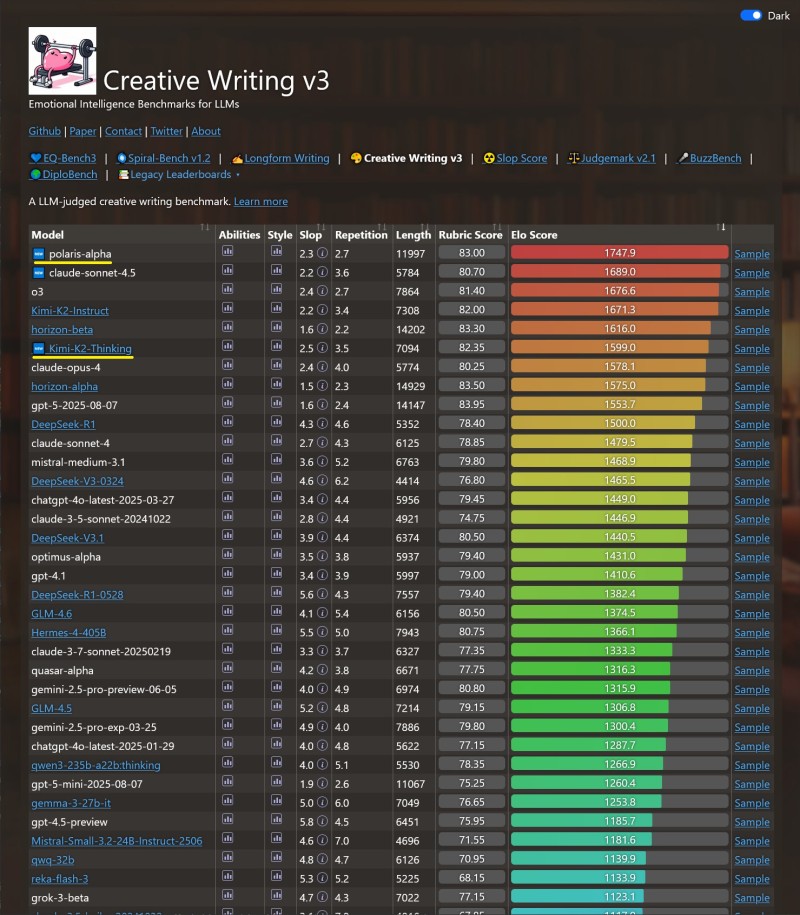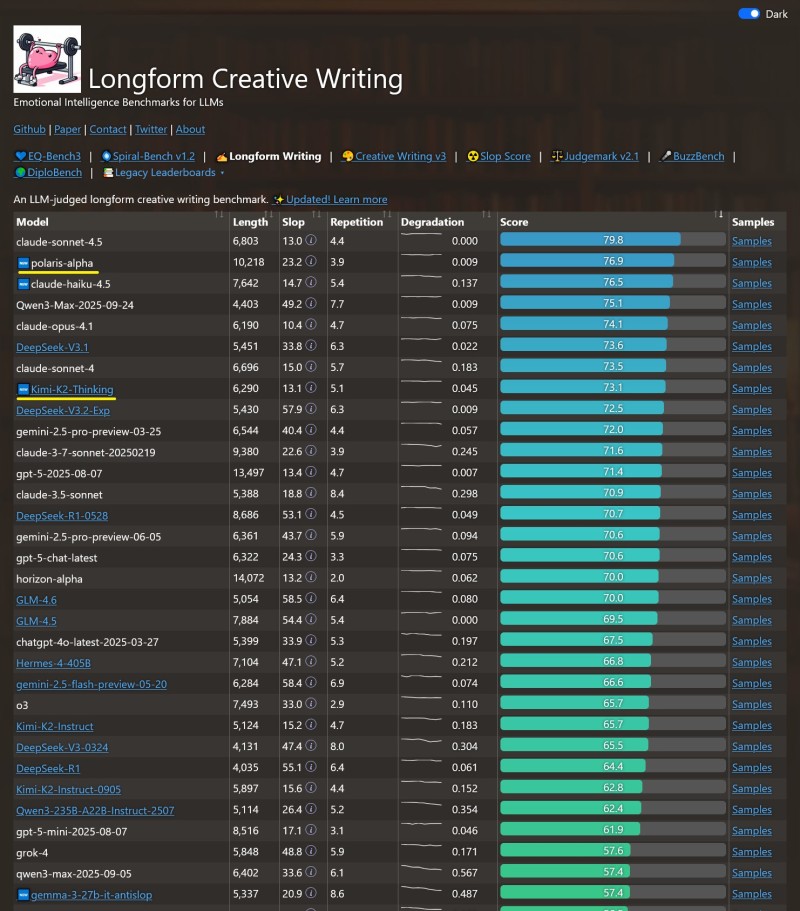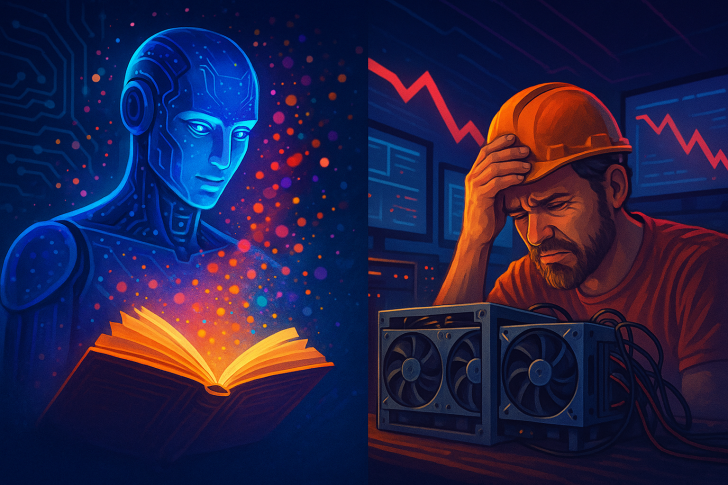● Polaris-Alpha—believed to be OpenAI's GPT-5.1—has claimed the top spot on EQ-Bench's Creative Writing leaderboard, while China's Kimi-K2-Thinking also shows strong performance. This AI progress comes as crypto miners warn that proposed tax changes could trigger bankruptcies and threaten the infrastructure supporting these advanced models.
● Polaris-Alpha, a secretive model on OpenRouter widely believed to be OpenAI’s GPT-5.1, now leads EQ-Bench’s Creative Writing v3 rankings. This model reportedly outperforms all major competitors — including Claude-Sonnet-4.5, O3, and Horizon. The leaderboard places Polaris-Alpha firmly at the top with the highest score.
● Sam Paech backed this up, saying Polaris-Alpha "likely is gpt-5.1" based on how its outputs match GPT-5 patterns and its unusually high rate limits. A clustering chart he shared puts Polaris-Alpha right next to other GPT-5 models.

● China's Kimi-K2-Thinking is also making waves, ranking high in both creative and longform writing.

● While AI advances, crypto miners are worried about proposed tax changes that could wreck their business. Industry leaders warn these new rules might cause immediate bankruptcies, push talent overseas, and kill investments in the data infrastructure that powers AI models like Polaris-Alpha.

● Miners point out that as AI computational needs explode, stable regulations matter more than ever. Budget analysts say keeping current rules would hurt tax revenues through lower profits. The mining industry suggests gradually raising profit taxes instead of adding new extraction fees—a move they say would protect jobs without messing up operations.
● Other proposed changes to energy rules and facility classifications could pile on even more costs, potentially affecting thousands of workers and reducing tax money flowing to local governments.
● Cutting-edge AI is developing faster than anyone expected, ramping up the global race for computing power. Poor tax policy could hurt the industries best positioned to support that demand. Polaris-Alpha's jump to the top shows how quickly AI is evolving—and how that evolution is colliding with economic and regulatory reality in crypto.
 Saad Ullah
Saad Ullah

 Saad Ullah
Saad Ullah


